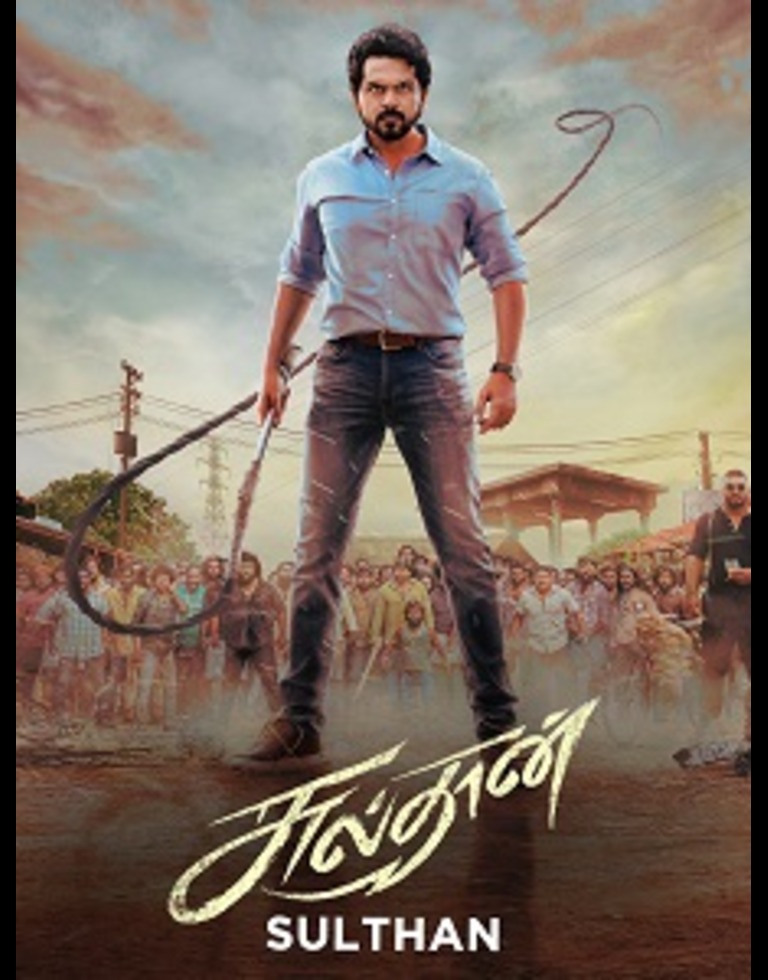 Maharaj
Maharaj recounts a legal case of historic importance but fails to stir the emotions around its sensitive subject matter.
The main story takes place in Bombay in 1862 and focuses on journalist Karsandas Mulji (Junaid Khan, son of Aamir Khan). Growing up in Gujarat, young Karsan questioned everything, refusing to follow orders on blind faith. By the time he was 30, he was an established social reformer, activist, and writer.
A devout Hindu, Karsan worships at a sect run by a charismatic religious figure — or maharaj — called JJ (Jaideep Ahlawat). The other holy men at the place of worship appreciate JJ for expanding the sect’s reach and growing its coffers.
In return, JJ exploits his peers’ permissive attitude and his followers’ blind faith to indulge in what the movie calls “erotic escapades.” He uses tradition to pressure young women devotees into having sexual intercourse with him under the moniker of “divine service.” Other men pay to watch, promised that witnessing the act will help them achieve salvation.
Theology also enables this sexual abuse. Holy texts are written in Sanskrit, which most lay people can’t read. The maharaj interprets scripture for the laity, who lack the knowledge to challenge his interpretations.
It’s akin to the language barrier which separated Catholic lay people from the liturgy until the 1960s, at which point priests were finally allowed to conduct mass in local languages rather than exclusively in Latin. The parallels between the abusive culture in
Maharaj and the abuse abetted by the Catholic Church is hard to miss — though the film goes out of its way to frame JJ as a lone bad actor without blaming Hinduism as a whole.
JJ’s abuse comes to light when he sets his sights on Karsan’s fiancée Kishori (Shalini Pandey), and Karsan witnesses her partaking in “divine service.” Though she’s uncomfortable about what happened with JJ — it’s unclear whether she knew she was being observed by strangers — her faith refuses to allow her to question the leader’s intentions. Only when Karsan breaks their engagement does she realize she may have been wronged by the holy man.
Kishori’s mistreatment prompts Karsan to write about JJ’s sexual abuse in his newspaper. JJ responds with social pressure, witness intimidation, and even arson. When Karsan refuses to back down, JJ sues him for libel for an astronomical amount of money.
The way the events are portrayed in
Maharaj — which is directed by Siddharth P. Malhotra and written by Sneha Desai, Vipul Mehta, and Bernard Williams — Karsan prints his allegations with little in the way of concrete proof, so there actually is an interesting question as to whether JJ has a case. Unfortunately, the courtroom scenes show little of the legal back-and-forth and primarily set up Karsan’s climactic speech (though JJ does give a few theatrical shows of power that are entertaining).
Overall, the film falls into an uneasy space where it doesn’t hit the emotional parts of the story as hard as it could have for a real melodrama, nor does it delve into the details like a legal drama or film on investigative journalism. It’s undoubtedly watchable, but it feels like a very well done made-for-TV movie.
Ahlawat is perfectly cast as the slimy JJ, maintaining an infuriating air of self-assurance throughout. Pandey is sympathetic as the duped Kishori. Shavari Wagh appears midway through the film as Karsan’s admirer, Viraaj, but the comic relief she’s asked to provide feels out of place.
Khan is under the microscope as a star’s son his first lead role, and he performs okay as Karsan. It’s a tough role to play in a story this tepid. Khan is very tall, and there’s a physical awkwardness to the way he moves — like a foal on unsteady legs. Being that he’s a newcomer, it’s hard to know if that’s his characterization of Karsan or simply him.
Malhotra and studio Yash Raj Entertainment tread carefully with this story about a corrupt holy man to avoid inflaming tensions unnecessarily, resulting in a movie that pulls its punches. Unfortunately, the folks who were always going to be mad about it got mad anyway, and the rest of us got a movie that was good but not great.
Download this movie
BCNmovies is a Professional movies Platform. I
n bcnmovies will provide you only interesting content, which you will like very much. We’re dedicated to providing you the best of movies, with a focus on dependability and movies download and streaming. We’re working to turn our passion for movies into a booming online website. We hope you enjoy our movies on
bcnmovies as much as we enjoy offering them to you.I will keep posting more important posts on
bcnmovies for all of you. Please give your support and love your bcnmovies.xyz site.
For Download this movie from BCNmovies click on the download button below:

 Maharaj recounts a legal case of historic importance but fails to stir the emotions around its sensitive subject matter.
The main story takes place in Bombay in 1862 and focuses on journalist Karsandas Mulji (Junaid Khan, son of Aamir Khan). Growing up in Gujarat, young Karsan questioned everything, refusing to follow orders on blind faith. By the time he was 30, he was an established social reformer, activist, and writer.
A devout Hindu, Karsan worships at a sect run by a charismatic religious figure — or maharaj — called JJ (Jaideep Ahlawat). The other holy men at the place of worship appreciate JJ for expanding the sect’s reach and growing its coffers.
In return, JJ exploits his peers’ permissive attitude and his followers’ blind faith to indulge in what the movie calls “erotic escapades.” He uses tradition to pressure young women devotees into having sexual intercourse with him under the moniker of “divine service.” Other men pay to watch, promised that witnessing the act will help them achieve salvation.
Theology also enables this sexual abuse. Holy texts are written in Sanskrit, which most lay people can’t read. The maharaj interprets scripture for the laity, who lack the knowledge to challenge his interpretations.
It’s akin to the language barrier which separated Catholic lay people from the liturgy until the 1960s, at which point priests were finally allowed to conduct mass in local languages rather than exclusively in Latin. The parallels between the abusive culture in Maharaj and the abuse abetted by the Catholic Church is hard to miss — though the film goes out of its way to frame JJ as a lone bad actor without blaming Hinduism as a whole.
JJ’s abuse comes to light when he sets his sights on Karsan’s fiancée Kishori (Shalini Pandey), and Karsan witnesses her partaking in “divine service.” Though she’s uncomfortable about what happened with JJ — it’s unclear whether she knew she was being observed by strangers — her faith refuses to allow her to question the leader’s intentions. Only when Karsan breaks their engagement does she realize she may have been wronged by the holy man.
Kishori’s mistreatment prompts Karsan to write about JJ’s sexual abuse in his newspaper. JJ responds with social pressure, witness intimidation, and even arson. When Karsan refuses to back down, JJ sues him for libel for an astronomical amount of money.
The way the events are portrayed in Maharaj — which is directed by Siddharth P. Malhotra and written by Sneha Desai, Vipul Mehta, and Bernard Williams — Karsan prints his allegations with little in the way of concrete proof, so there actually is an interesting question as to whether JJ has a case. Unfortunately, the courtroom scenes show little of the legal back-and-forth and primarily set up Karsan’s climactic speech (though JJ does give a few theatrical shows of power that are entertaining).
Overall, the film falls into an uneasy space where it doesn’t hit the emotional parts of the story as hard as it could have for a real melodrama, nor does it delve into the details like a legal drama or film on investigative journalism. It’s undoubtedly watchable, but it feels like a very well done made-for-TV movie.
Ahlawat is perfectly cast as the slimy JJ, maintaining an infuriating air of self-assurance throughout. Pandey is sympathetic as the duped Kishori. Shavari Wagh appears midway through the film as Karsan’s admirer, Viraaj, but the comic relief she’s asked to provide feels out of place.
Khan is under the microscope as a star’s son his first lead role, and he performs okay as Karsan. It’s a tough role to play in a story this tepid. Khan is very tall, and there’s a physical awkwardness to the way he moves — like a foal on unsteady legs. Being that he’s a newcomer, it’s hard to know if that’s his characterization of Karsan or simply him.
Malhotra and studio Yash Raj Entertainment tread carefully with this story about a corrupt holy man to avoid inflaming tensions unnecessarily, resulting in a movie that pulls its punches. Unfortunately, the folks who were always going to be mad about it got mad anyway, and the rest of us got a movie that was good but not great.
Maharaj recounts a legal case of historic importance but fails to stir the emotions around its sensitive subject matter.
The main story takes place in Bombay in 1862 and focuses on journalist Karsandas Mulji (Junaid Khan, son of Aamir Khan). Growing up in Gujarat, young Karsan questioned everything, refusing to follow orders on blind faith. By the time he was 30, he was an established social reformer, activist, and writer.
A devout Hindu, Karsan worships at a sect run by a charismatic religious figure — or maharaj — called JJ (Jaideep Ahlawat). The other holy men at the place of worship appreciate JJ for expanding the sect’s reach and growing its coffers.
In return, JJ exploits his peers’ permissive attitude and his followers’ blind faith to indulge in what the movie calls “erotic escapades.” He uses tradition to pressure young women devotees into having sexual intercourse with him under the moniker of “divine service.” Other men pay to watch, promised that witnessing the act will help them achieve salvation.
Theology also enables this sexual abuse. Holy texts are written in Sanskrit, which most lay people can’t read. The maharaj interprets scripture for the laity, who lack the knowledge to challenge his interpretations.
It’s akin to the language barrier which separated Catholic lay people from the liturgy until the 1960s, at which point priests were finally allowed to conduct mass in local languages rather than exclusively in Latin. The parallels between the abusive culture in Maharaj and the abuse abetted by the Catholic Church is hard to miss — though the film goes out of its way to frame JJ as a lone bad actor without blaming Hinduism as a whole.
JJ’s abuse comes to light when he sets his sights on Karsan’s fiancée Kishori (Shalini Pandey), and Karsan witnesses her partaking in “divine service.” Though she’s uncomfortable about what happened with JJ — it’s unclear whether she knew she was being observed by strangers — her faith refuses to allow her to question the leader’s intentions. Only when Karsan breaks their engagement does she realize she may have been wronged by the holy man.
Kishori’s mistreatment prompts Karsan to write about JJ’s sexual abuse in his newspaper. JJ responds with social pressure, witness intimidation, and even arson. When Karsan refuses to back down, JJ sues him for libel for an astronomical amount of money.
The way the events are portrayed in Maharaj — which is directed by Siddharth P. Malhotra and written by Sneha Desai, Vipul Mehta, and Bernard Williams — Karsan prints his allegations with little in the way of concrete proof, so there actually is an interesting question as to whether JJ has a case. Unfortunately, the courtroom scenes show little of the legal back-and-forth and primarily set up Karsan’s climactic speech (though JJ does give a few theatrical shows of power that are entertaining).
Overall, the film falls into an uneasy space where it doesn’t hit the emotional parts of the story as hard as it could have for a real melodrama, nor does it delve into the details like a legal drama or film on investigative journalism. It’s undoubtedly watchable, but it feels like a very well done made-for-TV movie.
Ahlawat is perfectly cast as the slimy JJ, maintaining an infuriating air of self-assurance throughout. Pandey is sympathetic as the duped Kishori. Shavari Wagh appears midway through the film as Karsan’s admirer, Viraaj, but the comic relief she’s asked to provide feels out of place.
Khan is under the microscope as a star’s son his first lead role, and he performs okay as Karsan. It’s a tough role to play in a story this tepid. Khan is very tall, and there’s a physical awkwardness to the way he moves — like a foal on unsteady legs. Being that he’s a newcomer, it’s hard to know if that’s his characterization of Karsan or simply him.
Malhotra and studio Yash Raj Entertainment tread carefully with this story about a corrupt holy man to avoid inflaming tensions unnecessarily, resulting in a movie that pulls its punches. Unfortunately, the folks who were always going to be mad about it got mad anyway, and the rest of us got a movie that was good but not great.




